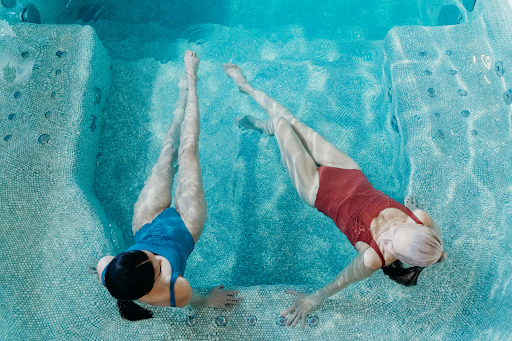
A Closer Look at How Hydrotherapy Promotes Physical and Mental Balance
Hydrotherapy has emerged as a popular alternative treatment modality that harnesses the healing power of water to promote wellness. With roots dating back centuries, this therapeutic practice uses water in diverse forms—whether as liquid, steam, or ice—to address various health issues. By creating a soothing and supportive environment, hydrotherapy can aid in recovery from injuries, alleviate stress, and foster a deep sense of relaxation. This article dives into the myriad ways hydrotherapy supports both physical and mental wellness, making it an appealing option for individuals seeking a holistic approach to health.
Understanding Hydrotherapy
Hydrotherapy is defined as the use of water for therapeutic purposes, which can take various forms, such as whirlpool baths, aquatic exercises, and even steam inhalation. This therapy's effectiveness lies in its ability to harness water's natural properties, including temperature control, buoyancy, and massaging effects. Water can help soothe sore muscles, reduce joint pain, and promote circulation—all crucial aspects when aiming for physical recovery.
Engaging with water can provide relief from chronic pain conditions, improve mobility, and speed up the overall healing process. Importantly, the calming nature of water contributes to mental health. People often find that being immersed in water alleviates feelings of anxiety, creating a serene atmosphere that promotes relaxation.
The Physical Benefits of Hydrotherapy
Hydrotherapy offers numerous physical benefits that make it an attractive choice for rehabilitation and wellness. The buoyancy of water reduces strain on joints and muscles, allowing individuals recovering from injuries or surgeries to engage in movement without discomfort. It's particularly beneficial for those with arthritis as it enables gentle exercise while easing pain through warmth and resistance. Studies show that hydrotherapy can significantly increase circulation, which helps to deliver essential nutrients to damaged tissues and aids in the elimination of toxins from the body.
Using hydrotherapy techniques, patients often experience a sense of improved flexibility and decreased stiffness, leading to enhanced overall mobility. Patients who engage in water-based rehabilitation often report a heightened sense of motivation, allowing them to tackle their recovery journeys more effectively. This balance of physical activity and gentle resistance makes hydrotherapy a unique supporter of physical health.
Mental Health Advantages
Beyond its physical benefits, hydrotherapy serves as a powerful ally for mental wellness. Engaging in water-based activities has been shown to reduce stress and promote relaxation. The soothing properties of warm water allow for a meditative experience, often leading to a decrease in anxiety levels. Studies indicate that water therapy can enhance mood by stimulating the release of endorphins, the body’s natural painkillers and mood lifters.
Holistic practices typically combine deep breathing techniques with hydrotherapy, transforming each session into a mindfulness practice that encourages mental clarity. The serene environment of the water invites individuals to focus inward, facilitating self-reflection and emotional release. The gentle massaging effect of water contributes to reduced mental fatigue, leading to a dynamic balance between body and mind.
Hydrotherapy for Specific Conditions
Many health conditions can significantly benefit from hydrotherapy. Individuals suffering from musculoskeletal problems, including back issues and joint pain, frequently find relief through targeted hydrotherapy treatments. This therapy is known to improve underlying conditions like fibromyalgia and chronic fatigue syndrome by promoting relaxation and mobility. Through specific water-based techniques, patients often experience fewer hospital visits and a reduction in the use of pain medications.
Hydrotherapy is increasingly being recognized for its benefits in mental health situations, such as depression and anxiety disorders, proving effective in conjunction with medication and therapy. The adaptive nature of hydrotherapy makes it suitable for various individuals, including those with disabilities or elderly clients who require gentle rehabilitation methods.
Hydrotherapy in Fitness Regimens
More than just a treatment, hydrotherapy can enhance fitness regimens for athletes and fitness enthusiasts. Water naturally acts as resistance, offering individuals an alternative workout that maintains cardiovascular fitness while reducing the risk of injury associated with high-impact activities. Engaging in water aerobics or resistance training in a pool can cultivate strength, flexibility, and endurance.
With varying depths and temperatures available, athletes can customize their hydrotherapy sessions to address specific needs, such as recovery after intense workouts or conditioning before competitions. Research has indicated that consistent use of hydrotherapy in athletic training can result in improved performance metrics, showcasing its significance in the sports community. The seamless blend of rehabilitation and fitness in hydrotherapy encourages balanced training regimens.
Accessibility of Hydrotherapy
Accessibility presents one of hydrotherapy's strengths, allowing a diverse range of individuals to benefit from its healing properties. At many facilities, services are tailored to accommodate varying abilities, ensuring that anyone, from retired individuals to competitive athletes, can participate. As awareness around hydrotherapy expands, more communities are adapting their wellness offerings to include these services, making it an increasingly viable option for rehabilitation and fitness.
Those interested in pursuing hydrotherapy should seek facilities that offer diverse programs, including specific sessions for those with unique needs. The advancements in hydrotherapy techniques and technologies only reinforce the accessibility of these services, paving the way toward increased public awareness and acceptance.
By combining the healing properties of water with complementary treatments, individuals are empowered to pursue healthier lives. As this therapy continues to evolve and gain recognition, its potential to transform lives remains vast, offering a wealth of possibilities for promoting balance and wellness.